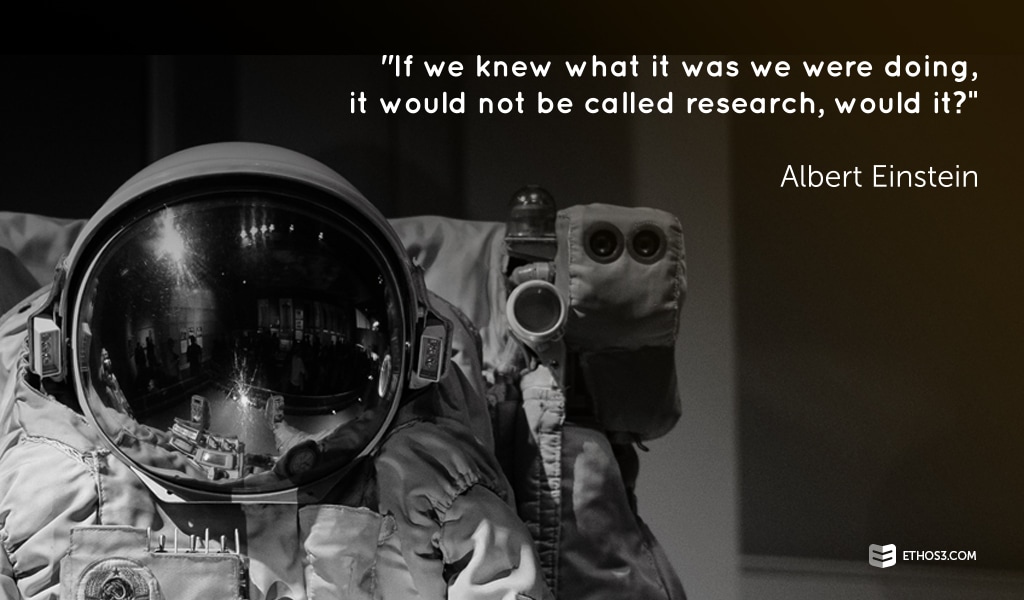Not every presentation will necessarily need a significant amount of time devoted to research. But most will need – or at least benefit from – a cursory scan of recent developments and past theories related to the presentation topic. No matter what that topic is, conduct research by glancing through recent news stories, perusing scientific or data-heavy articles from reputable institutions and publications, and any other industry-related materials. Why? Because how can you deliver a convincing message without fully understanding and comprehending the situation as it is at any given moment?

Research plays 3 primary roles within your presentations. Let’s highlight the nuances of each:
Research as evidence
As a millennial who grew up with all of the information and data in the world basically at my fingertips, I have become an affluent sifter. What do I mean by this? I know anyone can write or type anything they want to, but that doesn’t mean that their words reflect the truth. When I read any article or study, I check the source and even scrutinize how the data was collected. This may seem scary for presenters attempting to engage critical millennials like myself, however, this dynamic should be empowering to them because now they have the key. Provide researched evidence to back up your main points and millennials will be much more likely to jump on board.
Presentation Tip:
Don’t include too much evidence. Pick and choose your researched material wisely. Use only the pieces of research that move your message forward or support your ideas and concepts. Research should confirm your ideas or indicate that you are at least definitely on to something with your thoughts.
Research as influence
Even if your presentation incorporates storytelling, you can introduce elements of your research into the narrative. For example, the basis of quantitative research is collecting opinions of an event, idea, company, or product. You could utilize customer or client surveys and questionnaires to impact how your presentation audience feels about your message. And, just as presenters should practice research skills in order to enhance the quality of their arguments, they should also do so in order to divulge the most ethical and unbiased message they can.
Presentation Tip:
While you can select only those findings that fit into your current mindset, don’t let your bias show during a presentation. In fact, it can be even more compelling to bring up the opposing literature, data, or concepts and discuss why your stance makes more sense or is more accurate. In addition, try not to leave out important findings because they don’t support your ideas. Essentially, paint the truest and fullest picture you can of your presentation topic in the limited amount of time that you have to discuss it.
Research as direction
Perhaps you aren’t quite sure the angle with which you want to examine a subject. Treating your presentation like a research project would be a way to start honing in on what exactly you want to know about your industry, company, or product.
Presentation Tip:
Instead of trying to come up with a presentation title to ground your narrative, first create a research question. Let that question guide your information-gathering process. This exercise will allow you to present a perspective that will intrigue your audience and build on current industry or company knowledge – an all-around value add for you, personally, and for your employer.
Conclusion
The presenters who are lifelong learners are the presenters that create messages that last. If you can cultivate a loving relationship between you and that beautiful beast, Research, then you could craft strong, ethical, and focused arguments. For more information about how to present the most interesting and relevant information, check out the articles below:
Presenting Your Research Effectively
Many Hats: The Story of the Presenter
